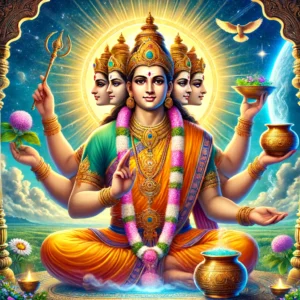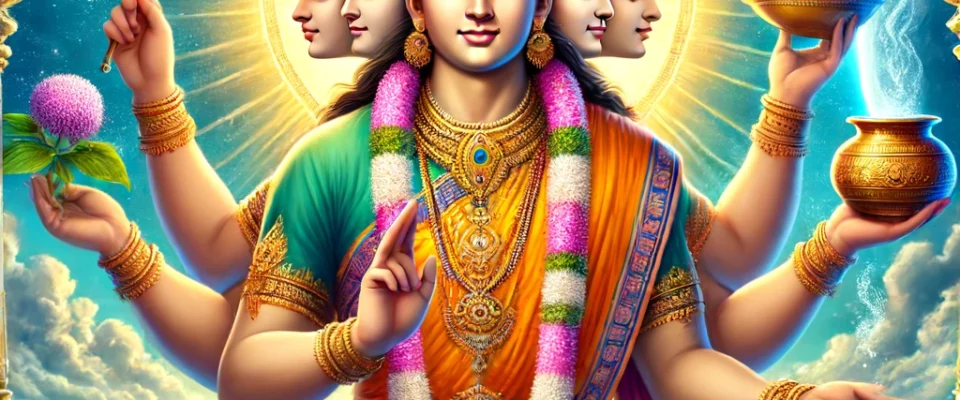Dhanvantari is a deity in Hinduism, regarded as the god of medicine and the divine patron of Ayurveda, the traditional system of Indian medicine. Here are some detailed facts about Dhanvantari:
- Origins and Family:
- Dhanvantari appears in Hindu mythology, especially in ancient texts like the Puranas and the Mahabharata.
- He is considered an incarnation of the god Vishnu and the son of Dhanwa, a mythological king.
- Roles and Symbols:
- God of Medicine and Healing: Dhanvantari is venerated as the god of medicine and the patron of Ayurveda. He is believed to have brought the knowledge of medicine and pharmaceuticals to humanity.
- Symbols: Dhanvantari is typically depicted with four hands, holding a conch shell (shankha), a discus (chakra), a pot of ambrosia (amrita), and a text on Ayurveda. He is often shown as a young and healthy man, symbolizing vitality and health.

- Famous Myths:
- Churning of the Ocean of Milk: One of the most famous stories involving Dhanvantari is his appearance during the churning of the ocean of milk (Samudra Manthan). During this event, the gods (devas) and demons (asuras) churned the ocean to obtain the nectar of immortality (amrita). Dhanvantari emerged from the ocean carrying a pot of nectar, bringing immortality to the gods. His appearance during this process reinforces his role as the god of medicine and healing.
- Influence and Worship:
- Dhanvantari is widely worshipped in Hinduism, especially during festivals and rituals related to health and medicine. The festival of Dhanteras, which occurs before Diwali, is dedicated to honoring Dhanvantari and praying for health and prosperity.
- Practitioners of Ayurveda and other traditional healers often pray to and worship Dhanvantari for guidance and protection in their healing practices.
Dhanvantari is a significant symbol of medicine and health in Hinduism, representing the divine source of medical knowledge and healing. His worship and reverence remain strong in traditional medical practices and the religious beliefs of the Indian people.

